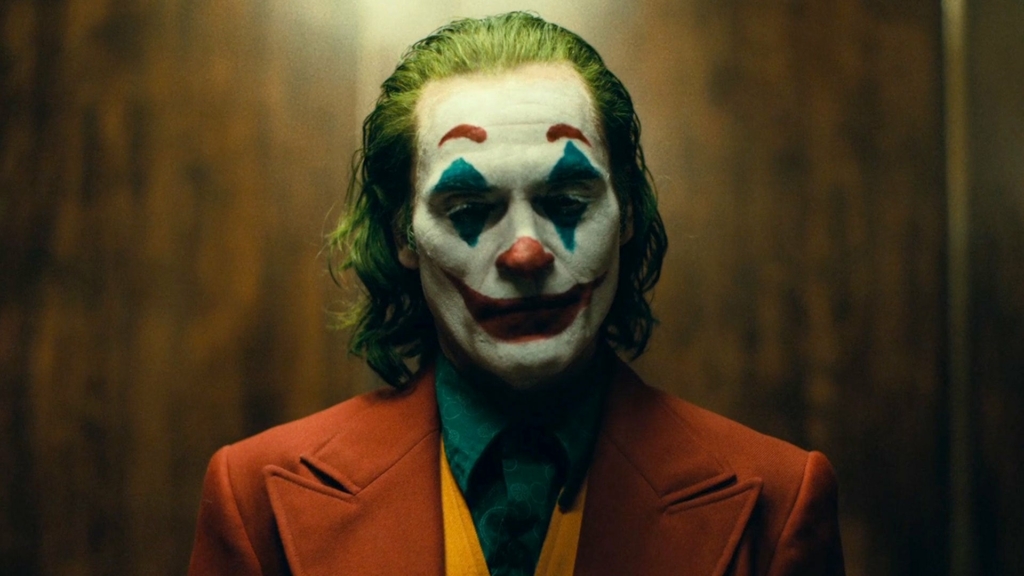
This review contains spoilers.
Since its debut a few weeks ago at the Venice Film Festival, where it won the top prize, Todd Phillips’s Joker has stirred up quite a tempest. Hands have been wrung about the movie’s supposed potential to inspire acts of real-life violence, and criticism of its brutal disorder has been met with a counter-backlash, including from Phillips himself, who has been sounding off about the “far-left” and “woke culture”, as The New York Times puts it, and other threats to the ability of a murderous clown to make money without being harassed.
We are now at the phase of the argument cycle when actual ticket buyers have a chance to see what all the fuss is about, which means that it’s also time for me to say my piece. And what I have to say is: Are you kidding me?
To be worth arguing about, a movie must, first of all, be interesting and entertaining: it must have, if not a comprehensible point of view, at least a worked-out, thought-provoking set of themes, some kind of imaginative contact with the world as we know it. The film turns out to be afraid of its own shadow, or at least of the faintest shadow of any actual significance.
It barely even works within the confines of its genre, the comic-book movie. Joker is a supervillain origin story, involving a character whose big-screen résumé already includes three Oscar winners (two for other roles, but still). It’s not hard to see the appeal. The Joker, an embodiment of pure anarchy, can be played light or heavy, scary or fun or all at once. He can sneer like Jack Nicholson, snarl like Heath Ledger or … I’m still not sure what Jared Leto was doing, but never mind.
As embodied by Joaquin Phoenix, he laughs a lot — enough to ensure that no one else will. You might wonder how this could be the work of the same Todd Phillips who directed The Hangover and Road Trip, which have at least a reputation for being funny. The cleverest bit here is casting Robert De Niro as a late-night talk-show host.
The Joker also has an alter ego: a lonely, damaged man eking out an abject living as a clown-for-hire and living in a drab apartment with his mother. Phillips, who wrote the script with Scott Silver, takes us back to the bad old days of Gotham City, when work was scarce, rats were rampant and a garbage strike fouled the streets. Fleck is bullied by thieving poor kids and drunken rich guys goaded to the point of murder by the meanness of the world. He has a crush on a neighbor that he thinks likes him back. He keeps a notebook full of stand-up material and works up the nerve to go on stage at a nightclub open-mic night.
There’s nothing wrong with any of these plot points, or with the details that knit Joker into the familiar Batman universe. Arthur has a connection to the Wayne family — we meet Alfred the butler and young Bruce — and also the Arkham Asylum. The problems occur when the movie focuses too much on delivering a message that kids, who wanted to be entertained, didn’t sign up for.
I can’t lie though Phoenix gave an incredible performance. Skinny, twitchy and at times startlingly graceful — Phoenix is one of the modern screen’s underrated dancers. Arthur’s uncontrollable laughter arises from a medical condition that is possibly the result of childhood abuse. His profound isolation also arises from social inequality, political corruption, television and a list of other causes. Rich people are awful. Poor people are awful. Joker’s embrace of radical evil becomes a kind of integrity.
My verdict: Joker is a great movie if you signed up to watch a social commentary and a guy rant about him not being accepted into society, like that isn’t already talked about enough. If you signed up to watch an entertaining movie because you’re a comic book nerd, I suggest you go watch Batman: The Dark Knight.
